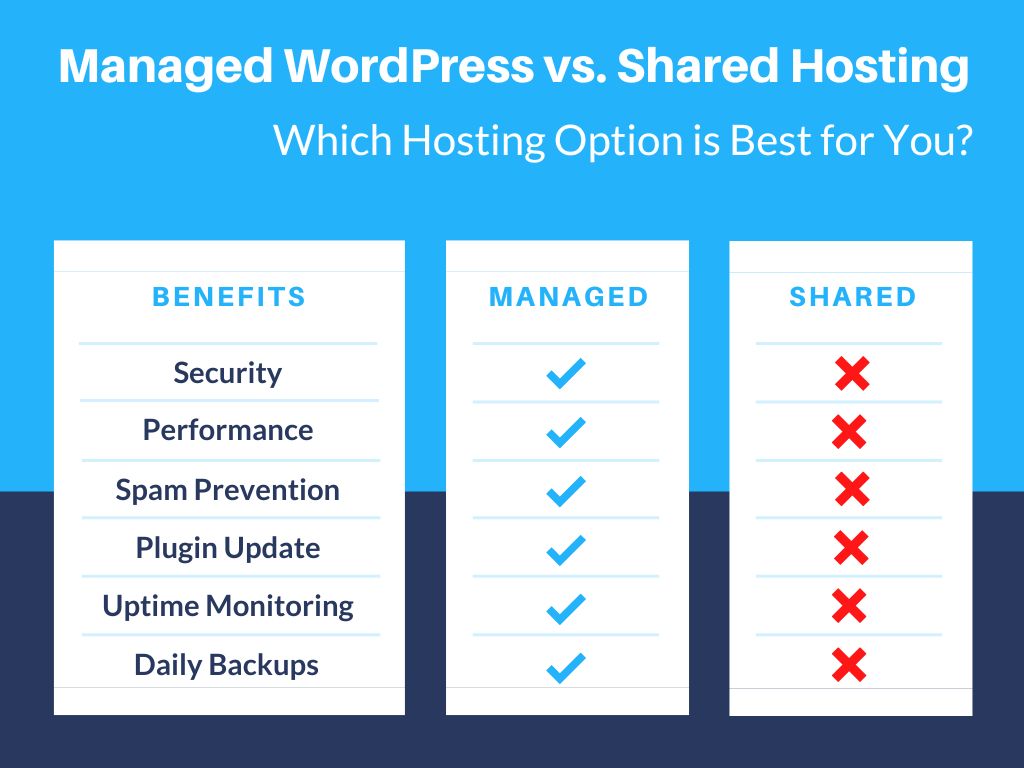If you’re a small business owner who is looking to start or expand your online presence, you’ll want to consider different hosting options. Two of the most popular hosting options are managed WordPress hosting and shared hosting. In this blog post, we’ll compare these two services so that you can make an informed decision about which one best suits your needs.
Managed WordPress Hosting
Managed WordPress hosting is a service that provides dedicated resources for managing a website through the popular content management system (CMS). A managed WordPress host provides users with access to a server specifically designed for running websites on the platform. This means that all of the hardware and software needed to run your site are already in place, making it easier for you to get started. Furthermore, managed WordPress hosts typically offer additional features such as automatic backups, security scanning, and malware protection. This can be especially helpful if you’re not tech-savvy enough to manage your own website.
Shared Hosting
Shared hosting involves sharing server resources with other customers on the same server. With shared hosting, you don’t have access to dedicated resources since they are allocated among multiple users on the same server. Additionally, shared hosting plans often come with limited storage space and bandwidth capacity compared to managed WordPress hosting plans. However, they tend to cost much less than managed WordPress plans since they are split among multiple customers. Moreover, many shared hosting plans include one-click installation tools that make it easy for users to set up their websites quickly without any technical expertise required.

Conclusion: Both managed WordPress hosting and shared hosting can be great solutions for small businesses depending on their budget and technical experience level. Managed WordPress plans provide more resources and features than shared plans but come at a higher price point; conversely, shared plans offer fewer features but cost less money overall. Ultimately, it’s up to you as a small business owner to decide which option is best suited for your needs!
